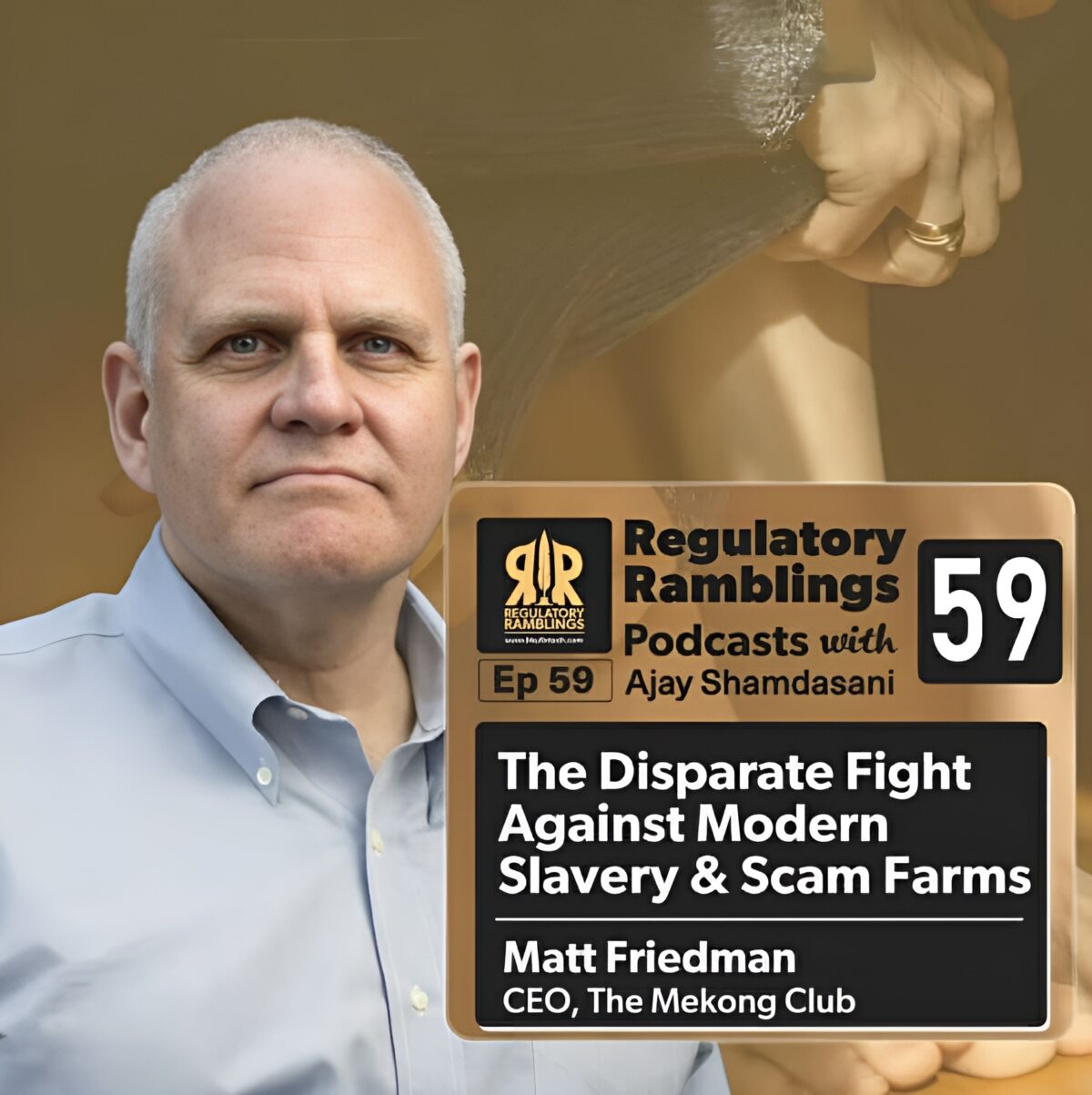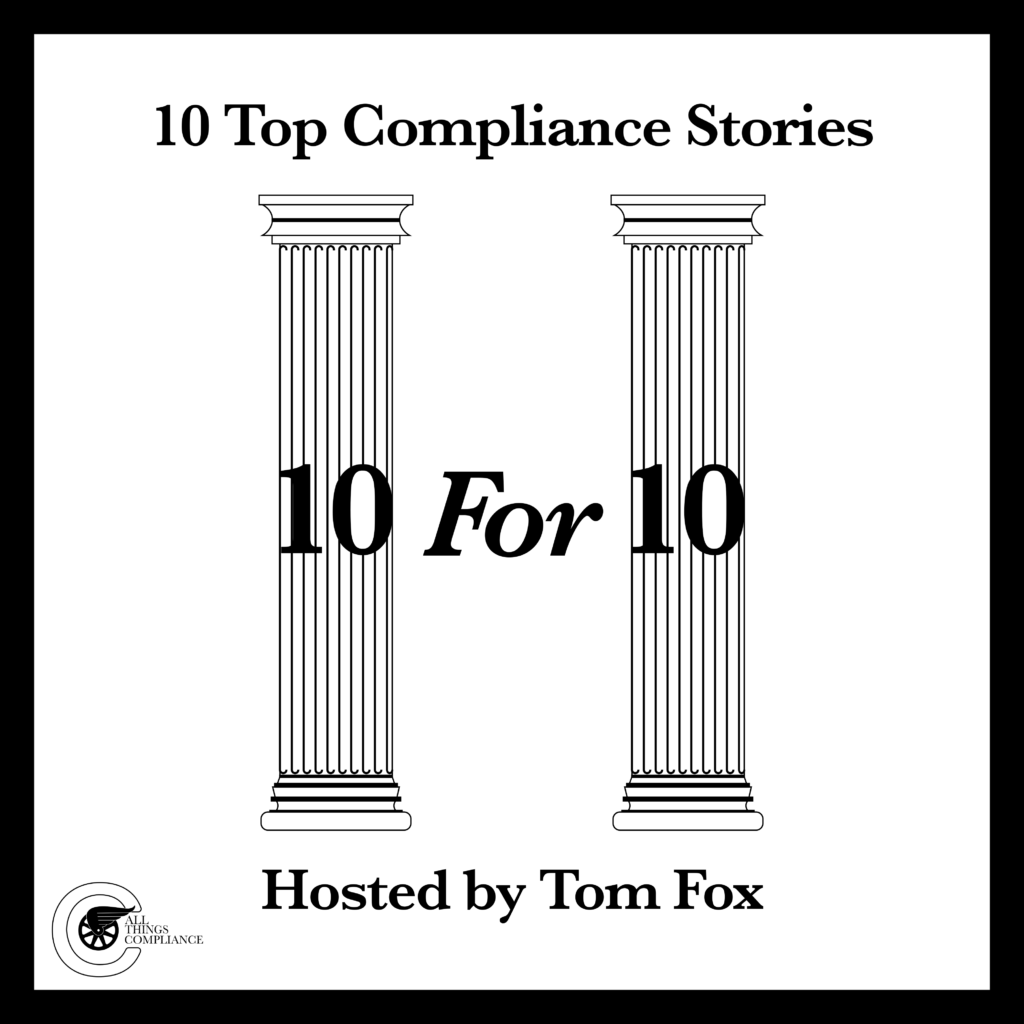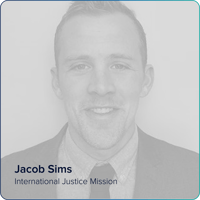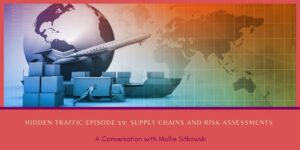As a former US and United Nations diplomat, Matthew Friedman has been a true warrior on the frontlines against modern slavery and sex trafficking for over four decades. He is an international human trafficking expert and the CEO of The Mekong Club, a non-governmental organization comprised of Hong Kong’s leading businesses that have joined forces to help end all forms of modern slavery.
The Mekong Club is very active in the ESG space and is well-versed in identifying red flags and appropriate metrics to gauge anti-human trafficking compliance.
Previously, he worked for the United States Agency for International Development and the UN in over 40 countries. Matt offers technical advice to numerous governments, banks, and corporations working to eliminate all forms of modern slavery and authorizes fifteen books. In 2017, he won Asia’s prestigious “Communicator of the Year” Gold Award.
His postings have taken him all over Asia, from Nepal to Bangladesh and Thailand. The Mekong Club works with private sector banks, manufacturers, retailers, and the hospitality sectors to do what they need to do in the fight against human trafficking and slavery.
The topic of modern slavery – more colloquially referred to as human trafficking – is a bleak one. In this episode of Regulatory Ramblings, Matt chats with host Ajay Shamdasani about what the global banking and financial institutions and multinational corporations can do about the matter.
The problem indirectly affects us all: estimates are that 50 million people in the world are currently in some form of slavery. Twenty-seven million of them are engaged in forced labor, of which 82% of this figure is associated with supply chains.
Though many survivors of human slavery put on a brave face and try to go about their lives as best they can, it is debatable whether or not they can truly ever be made whole.
The conversation begins with Matt sharing his background and what drew him to the cause of modern slavery. He also stresses that despite the Mekong Club being an NGO, it works with the private sector, perhaps more so than with other NGOs or state bodies. As he notes, there is a greater impetus to take action to effect change in the private sector than in the public sector.
Working with the private sector is an approach that has served Matt and the Club well because, as he puts it: “The private sector has a sense of urgency, unlike the public sector. If a company does an audit on human trafficking and there is a problem, within fifteen minutes, they will call a meeting of all the relevant stakeholders and work to remediate it. The private sector does more than traditional NGOs because they are closer to the action,” he said. He added that NGOs tended to intellectualize matters, often reducing them to purely academic or legal concerns.
Reflecting on his four decades in the field, Matt also recounts what has changed about human trafficking and what has remained the same. As he points out, the evolution of human trafficking is interesting, going from forced manual labor to compelling enslaved persons to undertake more elaborate crimes such as scam farms and ‘pig butchering’ schemes.
The discussion concludes with Matt sharing his views on how the financial sector can protect themselves from becoming unwitting participants in human trafficking and the sex trade. There is an intersection between money laundering, financial crime, and human trafficking, he says, and it is something the UN Counter-Trafficking program was created to combat.
The Regulatory Ramblings podcasts are brought to you by the University of Hong Kong—Reg/Tech Lab, HKU-SCF Fintech Academy, Asia Global Institute, and HKU-edX Professional Certificate in Fintech, with support from the HKU Faculty of Law.
Useful links in this episode:
-
Follow Matt Friedman on LinkedIn
-
Matt’s books on Amazon: Dancing in the Light of the Moon, Be the Hero: Be the Change, and Where were you?: A Profile of Modern Slavery
-
The Mekong Club: Webpage
You might also be interested in:
-
Must have book by Ross Buckley, Douglas Arner & Dirk Zetzsche – FinTech: Finance, Technology & Regulation
-
Building Better Financial Systems: FinTech Sustainability – Research
-
HKU-SCF Fintech Academy – website
-
Asia Global Institute – website
-
Most sought after Fintech course on edX – Introduction to Fintech
Connect with RR Podcast at:
LinkedIn: https://hk.linkedin.com/company/hkufintech
Facebook: https://www.facebook.com/hkufintech.fb/
Instagram: https://www.instagram.com/hkufintech/
Twitter: https://twitter.com/HKUFinTech
Threads: https://www.threads.net/@hkufintech
Website: https://www.hkufintech.com/regulatoryramblings
Connect with the Compliance Podcast Network at:
LinkedIn: https://www.linkedin.com/company/compliance-podcast-network/
Facebook: https://www.facebook.com/compliancepodcastnetwork/
YouTube: https://www.youtube.com/@CompliancePodcastNetwork
Twitter: https://twitter.com/tfoxlaw
Instagram: https://www.instagram.com/voiceofcompliance/
Website: https://compliancepodcastnetwork.net














 ESG Supply Chain Compliance with Travis Miller and Jared Connors:
ESG Supply Chain Compliance with Travis Miller and Jared Connors: Companies are starting to realize the significance of making a commitment to ESG through responsible sourcing.
Companies are starting to realize the significance of making a commitment to ESG through responsible sourcing.